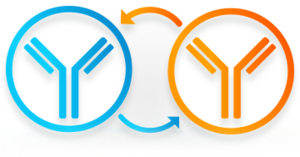The latest data on biosimilar switching in British Columbia, Canada shows that 28% of patients with inflammatory bowel disease (IBD) have switched to a biosimilar version of their medication.
British Columbia (BC) was the first Canadian province to stop coverage of originator biologicals and switch patients to biosimilars [1].
The first phase of the scheme in BC began in May 2019 and involved switching patients taking an originator biological for non-gastrointestinal conditions, such as rheumatoid arthritis, to a biosimilar. This phase ended on 25 November 2019. In the final month of the transition period for the first phase, switches reached 73% for Remicade and 78% for Enrbel.
Phase two of the scheme included a total of 1,858 patients taking Remicade (infliximab) for Crohn’s disease or ulcerative colitis.
The latest data from BC PharmaCare, an insurance scheme in the region, was collected at the end of December 2019 – four months into the six-month transition period for phase two. This data shows that 28% of patients had switched to a biosimilar.
Reasons for the delay in switching may include patients waiting to see a specialist to receive their biosimilar prescription and late switches not yet being reflected in claim data (infusions typically occur every 4–8 weeks).
It is also important to note that a 100% switch rate was never expected, as some patients may use a different originator drug, use private coverage to continue receiving the same originator drug, or discontinue treatment altogether.
To gather patients’ views with Crohn’s or ulcerative colitis (or their caregivers) on the switching policy from BC PharmaCare, a survey entitled ‘BC Biologic to Biosimilar Switch Survey: Patient/Caregiver Experience’ has been sent out by IBD charity Crohn’s and Colitis Canada to collect information on switching from Remicade to its biosimilar version (Inflectra or Renflexis), including questions about how patients were informed about the switch and how the switch has affected them and their health.
Other Canadian provinces have also mandated a switching policy and data is expected soon from Alberta, which launched its biosimilars plan in December 2019 [2].
Related articles
Opposition party in Alberta, Canada fights biosimilar switching policy
Ontario becomes third Canadian province to switch patients to biosimilars
Arguments against Alberta’s plans to switch patients to biosimilars
Praise for Canada’s BC after it adopts biosimilar transitioning policy
References
1. GaBI Online - Generics and Biosimilars Initiative. Canada’s British Columbia to switch patients to biosimilars [www.gabionline.net]. Mol, Belgium: Pro Pharma Communications International; [cited 2020 Apr 17]. Available from: www.gabionline.net/Policies-Legislation/Canada-s-British-Columbia-to-switch-patients-to-biosimilars
2. GaBI Online - Generics and Biosimilars Initiative. Concerns raised as Canada’s Alberta plans to switch patients to biosimilars [www.gabionline.net]. Mol, Belgium: Pro Pharma Communications International; [cited 2020 Apr 17]. Available from: www.gabionline.net/Policies-Legislation/Concerns-raised-as-Canada-s-Alberta-plans-to-switch-patients-to-biosimilars
Permission granted to reproduce for personal and non-commercial use only. All other reproduction, copy or reprinting of all or part of any ‘Content’ found on this website is strictly prohibited without the prior consent of the publisher. Contact the publisher to obtain permission before redistributing.
Copyright – Unless otherwise stated all contents of this website are © 2020 Pro Pharma Communications International. All Rights Reserved.
Source: BC PharmaCare; Crohns & Colitis Canada








 0
0











Post your comment